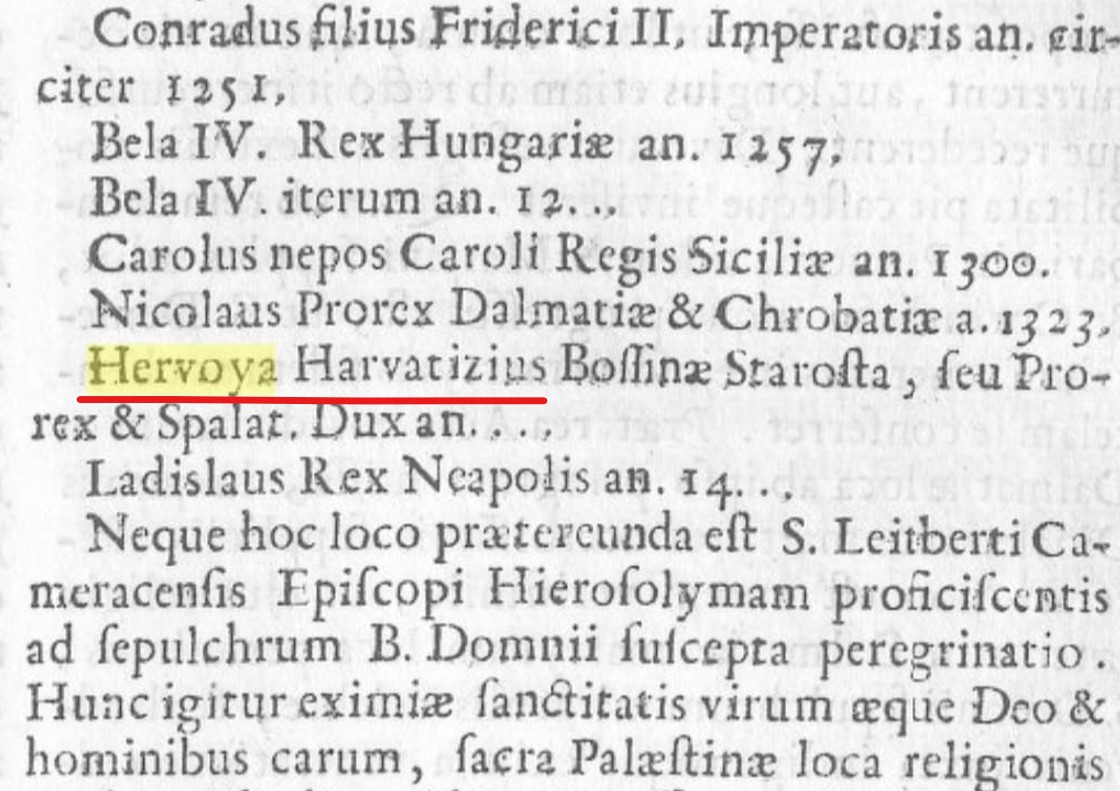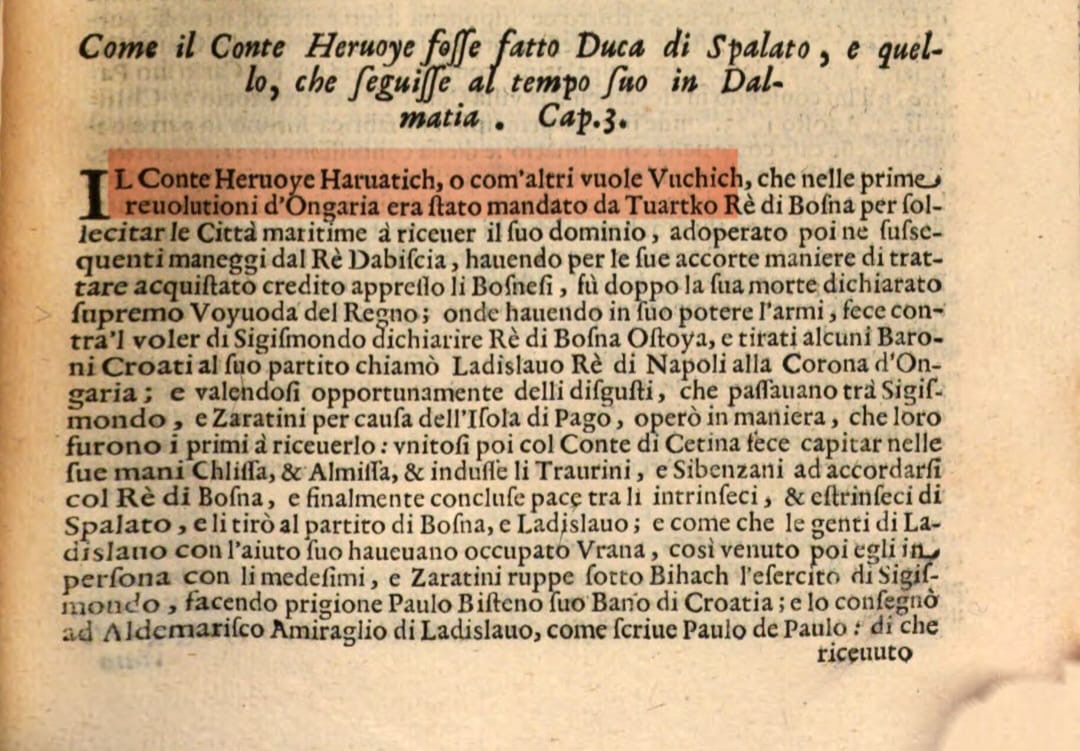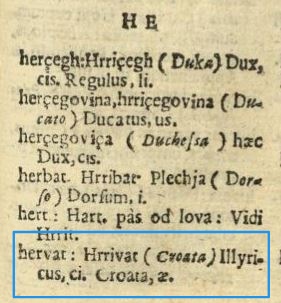
How to get URL link on X (Twitter) App





 Donji Kraji su bili zahvaćeni procesom hrvatske i etnogeneze Bošnjana. To je ozemlje bilo dijelom Hrvatske, pa kasnije banovine/kraljevine Bosne, krajem 13. i početkom 14. stoljeća pod vlašću Bana Hrvata Pavla Šubića. O identitetskim mijenama od 36:43: 2/5
Donji Kraji su bili zahvaćeni procesom hrvatske i etnogeneze Bošnjana. To je ozemlje bilo dijelom Hrvatske, pa kasnije banovine/kraljevine Bosne, krajem 13. i početkom 14. stoljeća pod vlašću Bana Hrvata Pavla Šubića. O identitetskim mijenama od 36:43: 2/5 

https://twitter.com/admirim/status/1793687996958683593
 The character of the 1991-1995 War in/on Croatia was best explained by Vucic's mentor, a Greater-Serbian ideologist and a war criminal Vojislav Seselj at the November 1991 notorious gathering of Serb forces in the occupied Croatian city of Benkovac.
The character of the 1991-1995 War in/on Croatia was best explained by Vucic's mentor, a Greater-Serbian ideologist and a war criminal Vojislav Seselj at the November 1991 notorious gathering of Serb forces in the occupied Croatian city of Benkovac. 




 "...their legs also, their feet large and wide, and without further ado their whole body is robust and of the best proportions. Finally, in my opinion, they are the best built people of Europe who feel better about their own people, and it seems that God, using nature..." 2/x⬇️
"...their legs also, their feet large and wide, and without further ado their whole body is robust and of the best proportions. Finally, in my opinion, they are the best built people of Europe who feel better about their own people, and it seems that God, using nature..." 2/x⬇️



 THE SUPREME COURT OF CROATIA on the salute "Za dom spremni" of the patriotic song "Bojna Čavoglave" by Marko Perković Thompson: "In the appeal the prosecutor claims that the defendant [Thompson] knowingly and intentionally encouraged the audience to participate in the performance
THE SUPREME COURT OF CROATIA on the salute "Za dom spremni" of the patriotic song "Bojna Čavoglave" by Marko Perković Thompson: "In the appeal the prosecutor claims that the defendant [Thompson] knowingly and intentionally encouraged the audience to participate in the performance

 Most Croats today know about the Battle of Krbava Field of 1493, a battle in which Croatian feudal forces had been heavily defeated by the Ottomans (5000-7000 killed, 1500 imprisoned).
Most Croats today know about the Battle of Krbava Field of 1493, a battle in which Croatian feudal forces had been heavily defeated by the Ottomans (5000-7000 killed, 1500 imprisoned).

 Byzantine author Niketas Choniates (c. 1150 – died after 1210), writes about efforts by Serb ruler Nemanja in the years 1163 - 1173: "he wants to win over Croatia and takes control over people of Kotor". Political Croatia was west of Neretva river at that time.
Byzantine author Niketas Choniates (c. 1150 – died after 1210), writes about efforts by Serb ruler Nemanja in the years 1163 - 1173: "he wants to win over Croatia and takes control over people of Kotor". Political Croatia was west of Neretva river at that time.

 One reference for this well-known lie is the calendar of the Serb Catholic movement of the late 19th c. Dubrovnik.
One reference for this well-known lie is the calendar of the Serb Catholic movement of the late 19th c. Dubrovnik. 

https://twitter.com/ervin_zaljevic/status/15671884462166876163) Bosniak nationalists call for (anti-Dayton Peace) hegemony under the "civic" guise. They want to abolish the cantons in FBiH and have "at least" that federal unit of Bosnia and Herzegovina organized as a unitary/centralized Bosniak nation-state. Again, all under "civic" guise;



https://twitter.com/HCroats/status/1550405624181260290
 He, i.a., said that there are a bunch of documents which prove that all Serbs were/are speakers of Shtokavian. The only problem is that some Serbs were/are speakers of Torlak, but the bigger problem this linguist has is with basic logic:
He, i.a., said that there are a bunch of documents which prove that all Serbs were/are speakers of Shtokavian. The only problem is that some Serbs were/are speakers of Torlak, but the bigger problem this linguist has is with basic logic:https://twitter.com/BorisJohnson/status/1542462117399461891Britain knows its place in Europe after Brexit - to be the whip of the Hypocritical Empire (🇺🇸) and get treats from it as reward. Sadly the EU is also willingly on the leash of the Empire (see article 👇🏽). Only 🇭🇺 resists. americanaffairsjournal.org/2022/05/the-eu…



 This word has 2 confirmations from the same 15th c. text written in Poznań:
This word has 2 confirmations from the same 15th c. text written in Poznań:
 while he refers to it as "Illyrian" in rubric titles with Italian & Latin as basic.
while he refers to it as "Illyrian" in rubric titles with Italian & Latin as basic.

 For decades historians have been arguing about the site of Tvrtko's coronation.
For decades historians have been arguing about the site of Tvrtko's coronation. 

 For his contribution in the liberation of Sinj he was rewarded by the Doge of Venice with the title Knight of St Mark.
For his contribution in the liberation of Sinj he was rewarded by the Doge of Venice with the title Knight of St Mark.